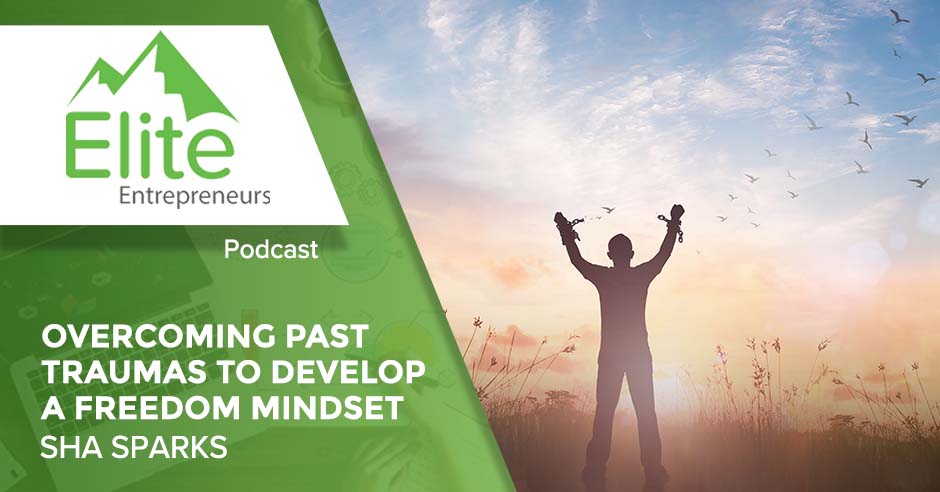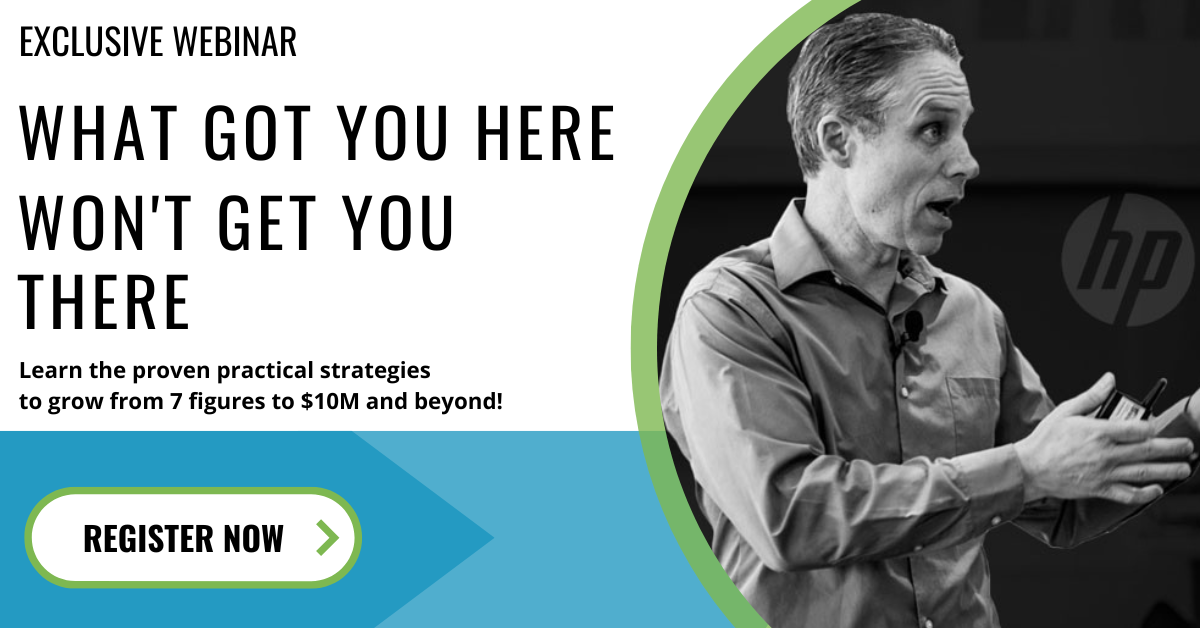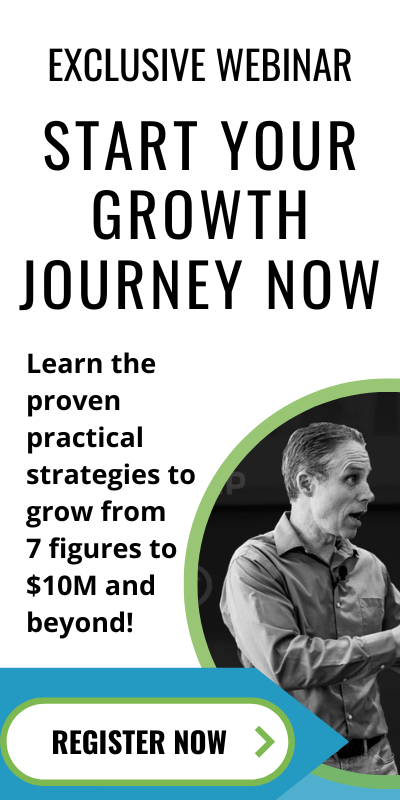Episode 16: Overcoming Past Traumas To Develop A Freedom Mindset, With Sha Sparks
As the CEO (Chief Excitement Officer) of Sparks of Hope & Certified Fearless Living Coach, Sha Sparks empowers women to peel away the layers of their own negative inner dialogue, limiting beliefs, and fear that stems from verbal abuse and loss, which prevents them from living the life they want.
As a Fearless Communicator, she is passionately impacting audiences across the country in a positive manner that empowers a spark of excitement for them to take action out of their comfort zone towards their goals.
When working with Sha, you will experience a higher level of confidence, self-acceptance, and self-love giving you permission to step out of your comfort zone and fully participate in life.
Her motto is when we share our own lessons learned of overcoming obstacles, we ignite a tiny spark of hope, love, connection, and community in other people. And when we ignite that spark, the whole world lights up.
What the podcast will teach you:
- Why Sha was destined to become an entrepreneur after being raised in a family of entrepreneurs
- Why communication skills are the cornerstone of Sha’s work, and how Sha learned to turn trauma into treasure
- How Sha defines stress versus trauma, and why it is important to recognize trauma and the fear it causes
- How holding on to traumas, even old traumas from childhood, can have a negative impact on business success
- Why communicating around trauma is important to overcoming it, and how mindset can have a dramatic part to play in working through trauma
- What first steps Sha believes people can take to recognize, communicate, and work through their past trauma
- Why journaling can be a powerful tool to help you move forward through trauma and help you organize your thoughts and recognize your patterns
- How to reach out to Sha and see if she is the right coach for you, and what qualities Sha recommends you look for in a coach
- Why it is important to have connections to others who are going through similar challenges as business leaders
- Why transparency and vulnerability are important qualities to have as a leader, and how they help to instill trust from your staff and even your customers
Resources:
- Website: shasparks.com
- LinkedIn: linkedin.com/in/sha-sparks-8a120b50/
- Facebook: facebook.com/iamshasparks
—
Overcoming Past Traumas To Develop A Freedom Mindset, With Sha Sparks
I am excited to be able to introduce to you our guest. Her name is Sha Sparks. Her website is ShaSparks.com. Sha, welcome to our program. How are you?
I am great. Thank you so much for connecting with me. I’m excited about today.
Thank you for joining us. Sha Sparks is a fearless communicator, empowerment, Certified Fearless Living Coach, author of How To Get Your Voice Back book, host of The Power Of Investing In People podcast, host of Hey, Sha, What Do I Say? Facebook Live show, and Chief Excitement Officer of Sparks of Hope, which is awesome. Her belief is that when we share our own lessons learned about overcoming adversities, we ignite a tiny spark of hope, love, connection and community in other people. When we ignite that spark, the whole world lights up. That’s the power of investing in people. With that, welcome again to the show, Sha.
Thank you for having me.
That’s quite a list of titles or signature items there. You’ve got a lot going on. Give us a little bit of history about you beyond the titles, and how it is that we get to benefit from everything you’ve learned over your life. Give me a little background here that my audience can benefit from, remembering that our audience are seven-figure business owners who are trying to grow their business.
I was raised by entrepreneurs. To become one myself, I think it was ingrained in my growing up years that one day, I would have my own business. I was a hairstylist in the beginning, and over time of being a hairstylist, I would have lots of CEOs and CFOs of multi-billion-dollar companies sit in my chair. We would talk about everything from work-life balance to talking about the dynamics between the employees and the company culture.
What I learned from talking with them and how I developed my fearless communicator is really about we all have a lack of communication. Many times, we don’t express what it is that we’re really needing, or we don’t say what we need to say, we say it in a more generalized sarcasm kind of way. It’s like having an expectation out there, “You ought to know this by now that this is what I need it.” It’s an interesting dynamic to see it doesn’t matter if you have a very small business to a multi-million-dollar business. Communication is key in all of it.
It doesn't matter if you have a very small business to a multimillion-dollar business. Communication is key in all of it. Click To TweetThe timing of this show is perfect for our audience. It’s still in the beginning of 2020. We’re going into a new year, a new decade. There are lots of looking forward. I did a solocast at the beginning of the year to kick things off, then I had a guest who was an ex-Navy seal, who was a bomb technician, and he does this thing around overcoming fear. You’re right on the heels of that, whether you come from a military background or you did hair with executives and became somebody that they could talk to. I find that fascinating. Get your hair done and talk to them about business at the same time. That’s pretty awesome.
The idea of overcoming fear and getting good with our communication is timely any time of year, but I think at the beginning of a year, when we’re thinking about, “What do we want to happen this year? What are my goals? What are the things that I want to overcome this year to break through?” I think that this message is very timely, so thank you for taking time with us today.
Again, thank you. I’m honored to be here.
When I did some reading on you, I noticed some language or reference around turning trauma into treasure or turning adversity into something that’s a strength or to your advantage. Talk to me a little bit more about your own history of overcoming challenges to a place of more empowerment, and then we’ll get into how you can help our audience do the same.
I love that you’ve already interviewed someone that’s from the military. I actually have experienced trauma, and I have turned it into a treasure. Now, I have coaching clients that I work with who have experienced their own trauma. We work on how to taking their trauma and turning it into a treasure.
Some more than others have these experiences in our lives that can leave a mark. It could be traumatic. You have learned how to make that a treasure, something positive. Please talk to us about that.
First of all, I used to study Psychology just for fun. I know, “Who does that?” I found it fascinating and really learned a lot about the brain and how the brain works. We have circuits and it’s all interconnected inside of a brain. If you look at your left hand and your right hand, and your left hand is where stress happens and your right hand is where trauma happens in your brain. It’s in two different centers of your brain. What is so interesting is that your brain needs time to recover differently from trauma than it does with stress. If you don’t have that time, and that time is absolutely different for everybody and different for every situation, every circumstance, if it does not have enough time to recover, then trauma and stress start to come together. Stresses then start to react in your brain like traumas.

Overcoming Past Trauma: Your brain needs time to recover differently from trauma than it does with stress. And if you don’t have that time, trauma and stress start to come together. Stresses then start to react in your brain like traumas.
For an example, a stress would be a flat tire. A trauma would be a car accident. You might have a car accident at some point and you’re hurt. Because you have that trauma that is already in your system or your brain, it’s like a muscle, so it remembers everything. We talk about muscle memory. Your brain is also that muscle and it remembers things.
What’s interesting is that the next time that you have a flat tire, it is reliving that trauma, and that’s when fear shows up. It starts to go through the same cycle of thinking the way that that happened in the accident. For myself, I was in an abusive relationship for a very long time. People talk about PTSD in the military. However, it is PTSD for anyone who has gone through any kind of trauma. Trauma is anything from losing a job, getting a divorce, losing a parent, losing a child. Even in places where you are in a car accident and you’re injured, you break a bone versus spraining something, which is more of a stress, you have to have major surgery, you get a diagnosis. There are many things that are trauma related that we don’t call it trauma. We just think, “This is life.”
I started studying Psychology and how the brain reacts to it. It’s like you, as a parent, are driving down the road and you have to slam on your brakes really quickly, sometimes you put your arm out to stop the kid in the next seat or a spouse or packages or whatever so it doesn’t fall into the floor or go through the windshield. That’s what fear does to your brain. Even something from childhood is still triggering in your brain like a trauma now, and it’s like putting that arm out, it’s showing up as fear, putting that arm out to stop you. That could be anything from emotional fear to physical fear.
Let’s take abuse for an example because abuse is a very emotional thing. It is an abuse as a child, and it could be a one-time occurrence. Your brain remembers that. Anything familiar comes back up, it automatically goes into fear. That could be trusting someone else, that could be being vulnerable with someone else. For myself, after I got out of this relationship, I just started going to counselors and reading books and hiring coaches, and started to peeling away the layers that we are because we are like an onion. We have all these layers that we build up over time around the outside. I started to peel away each layer and heal from all of the stuff that I’ve gone through.
As I got through one layer, I had no idea that I was holding on to so much stuff from my childhood or from my past. As I did that, my business started to grow actually, because as we know, you grow personally, then everything else is going to grow the same. As I started to grow and share with my hair clients like, “This is what I learned this week.” They’re like, “That’s amazing.”
They would say, “I am going to go out and change the way that I talk to my parents because of the way that you shared with me, how you talk differently to your parents.” By me healing and sharing what happened to me, the obstacles I overcame, it affected everyone around me. Then they went and changed their situation by changing whatever it is they needed to do to step out of their comfort zone to do something different that wasn’t so focused on the fear.
That’s extremely empowering to hear your journey. Without even getting into specifics, to talk about trauma and going through layers of onions to get to a place of healing so that you could be in a better place and how that affected you and others around you and your business and everything. That’s what I want our audience to tune into. Some of them might be thinking, “This is personal. It’s a little bit of psychology or a little bit of going to a therapy session here.” What I want everyone to hear and understand is that our business is only as healthy as we are as leaders of that business.
Our business is only as healthy as we are as leaders of that business. Click To TweetSometimes, we don’t want to admit that. I don’t want to stop and say, “I’m actually holding the business back.” Sometimes, our businesses get held back by some of our own head trash, our own traumatic experiences from the past. It doesn’t have to be extremely personal just because you shared that you were in an abusive relationship, and I’m sorry that you had to go through that.
Just because you went through that, doesn’t mean that everybody’s trauma comes from personal relationship. It can come from the real things that happen in running a business like that key customer just disappearing overnight, having to say goodbye to people that you hired. Maybe you had to do layoffs or cut back expenses, or maybe it was traumatic the first time you had to hire someone. There are lots of things we do in business that can be uncomfortable personally and leave some emotional challenge, whether or not we’ve taken time to think about that or acknowledge it. I’m interested in what you have learned and what you have to teach to our business owners about the things that might be holding them back as people, and how that can affect their business.
One of the things that holds us back is our mindset. I actually want to touch base on what you just said. It doesn’t have to be a personal relationship that can be toxic, but sometimes we have coworkers or bosses, or we had to fire someone. Any time you are working with another person, there is a possibility that there could be something traumatic happening. Maybe the trauma is not about you, but they’re going through the trauma, and we have to know how to be able to communicate and support them. Especially as a leader, we have to be able to understand how to support someone who has gone through something traumatic. Thank you so much for mentioning that.
When there’s a mindset of how you approach life, there seems to be either two ways. It’s either fear-based or it’s freedom-based. Freedom-based is like growth mindset. It’s all about taking the opportunity of what’s in front of you and seeing the good in it, seeing the positive, that it’s not necessarily a box, that you can look at it in a different way, and go around it to solve the problem.
A fixed mindset or a negative mindset or fear mindset is focused on the problem and the circumstances around the problem. I will even dare to say the drama around the problem. We sometimes focus so much on all of the stuff that’s going on around a situation, rather than focusing on how we look at this from a different perspective to find the answer, to find a solution rather than just them focused on, “This person said this or that person is not doing their job correctly.” That’s all valid. However, it’s how you look at it from a mindset perspective.
What I think what you’re saying is regardless of the circumstance, sometimes we get stuck in the emotion or drama around it, instead of dealing with the issue and keeping ourselves in more of a creative or collaborative space. In an unhealthy way, maybe we get addicted to the emotion and the drama around the circumstance, rather than dealing with the issue and moving on.
Some people get addicted to the negativity of it, not even about the drama, they get addicted to the negativity around challenges in business. They’re not forward thinking. They’re not freedom thinking. They’re not focused on figuring out how to solve a problem. Even if that means collaborating with someone else, they’re focused on the one thing they get fixed on. The reason they get fixed on that one thing, the thing that’s the challenge, and they don’t know how to go about going outside of that challenge, is because they’ve been triggered by something.

Overcoming Past Trauma: There are two mindsets of how you approach life. It’s either fear-based or freedom-based.
It always leans back to they’ve been triggered by something similar to this in their past. It’s funny how it all keep coming back to what our past is. That’s why it’s important to heal what’s going on in our life. It can be one situation, but we take that with us. It stays in our brain, and that creates our thought process, whether it’s fear or freedom thought process or a mindset on how we handle challenges.
You obviously help people work through some of these things in their own lives, so you probably come from the place of even if you think people can work on this themselves, it’s probably a lot easier with somebody who has got some training around it, who has some of their own experience with it. It’s probably a little easier with a friend on this path. Let’s assume that everybody on our audience is very like do-it-yourself oriented like, “I am capable. I don’t need help working through stuff like this.”
A lot of our audience are into personal growth and development. They’re investing in themselves. They’re trying to get better all the time. Some of them see the need for and invest in a coach, somebody like you. Some don’t, and maybe even many of them don’t. What would you recommend to somebody who’s not looking to get a coach to work on this for themselves or on themselves? Then maybe we can transition to those who acknowledge it. It would be helpful to have somebody else help me see this clearly or help me walk down this path. Do you think self-help is a viable option? Let’s start there and then maybe we’ll go over to how to get help from somebody else.
Personal development in any way, shape or form, whether it’s researching personal development books, other podcasts, YouTube, TED Talks, anything like that, my favorite question to ask is to have people ask themselves, “What is it that I don’t know that I need to know in order to move forward?” We only know what we know.
That’s a great question, “What is it that I don’t know that I need to know to move forward?” I like the focus on moving forward and an acknowledgement that I might not know something today that would enable me to do that. That’s awesome.
There’s nothing wrong with saying, “I don’t know something.” Yet, as a leader of a company, we are fearful because we don’t want to say that we don’t know at all. That’s why it’s important to ask yourself and be truthful with yourself. You don’t have to say this to anybody else. You don’t have to let the cat out of the bag and let anybody else know. You can keep this to yourself, but if you’re going to do that, I highly recommend journaling. Journal it out, write it out, figure it out how to go about it by writing it down and getting it out of your head with a pen and paper old school, not even typing it.
It triggers a neural pathway in your brain that changes things it comes from a different point in your brain, so it is actually like leaving stuff on the paper. Maybe you’ve asked yourself, “What is it that I don’t know that I need to know in order to move forward?” and you start journaling. The next thing you know, you might journal something completely bizarre that you had no idea that was going, but it automatically comes up and shows up for you. You don’t have to share this with anybody, but it is something that is extremely helpful. Brainstorming or therapeutic journaling is a must.
Being transparent with your staff and vulnerable with things you might not imagine yourself talking about as a leader brings you confidence. Click To TweetThat’s a great recommendation. Thank you. It’s a very practical one too. For all you reading, I know it’s not a new idea, many of you have heard that idea before and just not done anything with it. Let me reinforce what Sha is saying and urge you to take time, even if it’s just a few minutes each day, just journal out some thoughts. I think what you’re looking for is to see with your own eyes, patterns of thoughts that are going on in your head. If you can see it, “Now I can rewrite it or rescript it. Now I can change something to move forward,” as Sha said, rather than have that noise keeping me back, unseen in my mental clutter. Would you say something different than that, Sha?
No, that was eloquently said, thank you. It was perfect.
This is a tricky topic for some people. This might feel a little bit touchy, feely, or out there, or like you’re paying a visit to the psychologist or the psychiatrist, but the point is this, we know how mentally and emotionally taxing it can be to run a business. You feel the weight of the world on your shoulders. Nobody else has that same weight in your business anyway. Other business owners do, but in your business, even if they’re all in, if there are people you know, trust and love, and they’ve worked with you for years and years, they still don’t shoulder the weigh or burden that you bear as the business owner. That comes with some costs. There’s a price to that. If you don’t have the ways to keep yourself well, it can bring you down personally, and certainly affect the health of your organization.
Don’t kid yourself in thinking, “It’s just my problem. I’ve got to deal with it. It doesn’t affect anybody else.” It does affect others. Sha, what if people do want some help on this path? Why don’t you share how people could get ahold of you if they want to look more into working with you or learning more about what you do? In general, what would somebody look for in a coach if they’re trying to get some help on a path like this?
Thank you for asking. My website is ShaSparks.com. You can go halfway down the page where you can schedule a discovery call or a complEmentary consultation where we talk for maybe 20, 30 minutes to get a feel if we are the right fit for each other. There are millions of coaches just like there are millions of people, and not everybody has a right fit for each other. I definitely recommend if what I’m saying is calling to you and it’s resonating with you, “I think I need something like that,” then go to my website and scroll down and you can hit the link and sign up for an appointment. Otherwise, do research.
I researched tons of coaches before the ones I hired mine, and counselors as well. There are books, but just support. Even if somebody is not going through something like you are, because just like you said, we’re all handling things differently. We’re all in a different phase. It’s being around other leaders in their business who have the weight of the world on their shoulders and connecting with them and getting vulnerable with them, and talking with them and saying, “This sucks right now, this is what I’m going through. Do you have any advice? Have you ever been through this?” Being able to say that out loud to another person is extremely helpful. You can also get into masterminds. There are many different options out there that you can look at it from that point of view as well. However, like I said, do your research and find support whatever that looks like for you.
To add my perspective to what you’re sharing, many of you who are reading have intuitively found those support mechanisms in your life, and some of you haven’t. For those of you who haven’t, they could be communities where business owners get together or masterminds like Sha said. In our Elite Community, it’s not a primary thing that we sell. You can join our community. There’s content and accountability, and we teach you how to do things.

Overcoming Past Trauma: Being around other leaders in their business who have the weight of the world on their shoulders and connecting with them and just getting vulnerable and talking with them is extremely helpful.
One of the biggest benefits people get is getting with other business owners like them who are dealing with the same types of things. There’s a lot of human benefit and connecting with others going through similar challenges. I think that’s really wise, Sha. Thank you for sharing that. When you went through the process of searching for a coach for yourself, what did you learn about how to find a good coach that you would recommend to people as they’re searching if they want to go down that path?
What’s coming up for me is shared language. I could change my mindset. I could change maybe to get more fulfillment out of my business, out of my life. You just happened to be on one of these discovery calls, consultation calls, and they’re using those same words, mindset, fulfillment, more than just business, work-life balance, those types of things. If they’re using the same word that you’re thinking about, that’s the kind of person that you want to go with.
It’s almost like they’re reading your mind but they’re not reading your mind because again, not everyone is going to resonate with everyone. I had interviewed many coaches over the years for various things, and I’m like, “We’re not even speaking the same language. We’re not on the same page,” and that’s okay. I definitely recommend if you’re there are words that keep popping up to you that you’re thinking about, and the other person is saying it, that’s probably the person you need to be with.
There are some cues in the language for sure. I have to imagine that you’re not going to go work with somebody that you don’t like or admire in some way. You have to find somebody who you think has the insight and knowledge, or at least knows how to ask the questions of you to help you discover things that would help you move forward. I love that you keep talking about moving forward. That’s fantastic. Anything else as you think about an army of small business owners who are trying to move forward with their own business, and you want them to be fearless communicators or empowerment types of people, what would be a final thought or a push that you would give them?
Transparency and vulnerability, those were big buzzwords for 2019. I believe that when you are transparent with your staff and vulnerable with things that you might not imagine yourself talking about as a leader that’s going on in your business, it brings you confidence, which sounds like counterintuitive. However, it’s the opposite. When you are sharing what’s really going on, your staff and sometimes even your customers are willing to rally around you in such a way that you had no idea what support looked like before until you became transparent and vulnerable.
I love that thought. Thank you, Sha. It’s very consistent with some of the things that we try to encourage our audience to do. We want to make sure that they’re really good at setting a clear vision with their team and putting all the mechanisms in place to turn that vision into reality. Along the way, we think we have to be so polished and perfect and have all the answers like you said earlier, when in reality, we’re all just making this up. We’re trying to create it as it goes.
Being authentic and transparent about that makes you human. People like to connect with humans and follow humans. Instead sometimes we feel like, as business owners, we need to put on this air of perfectionism and we know everything, and that just isn’t the case. It doesn’t have to be true to lead a business forward, to lead people in an effective way. I love that you said that.
Thank you so much for sharing your insights. I hope that everybody reading will at a minimum, go check out SheSparks.com. Find out some of the things that Sha is up to. She’s out in the world, trying to help people turn some of their trauma into treasure, turn some of that adversity into advantage. I think that’s useful for every business owner who will at least pause long enough to go, “Do I have some of that baggage inside of me that would free me up to move forward more quickly with more effectiveness if I could get rid of it?”
My encouragement to everybody is to check out Sha’s website. Whether or not you feel like you want to work with a coach personally, find ways to keep yourself healthy because your business deserves having a healthy leader at the front there. Thank you, everybody, for reading. I hope you’ll tune in next time for another great episode.
Important Links
- ShaSparks.com
- How To Get Your Voice Back
- The Power Of Investing In People
- www.LinkedIn.com/in/sha-sparks-8a120b50/
- www.Facebook.com/iamshasparks
Want to listen to more? View all episodes here >



